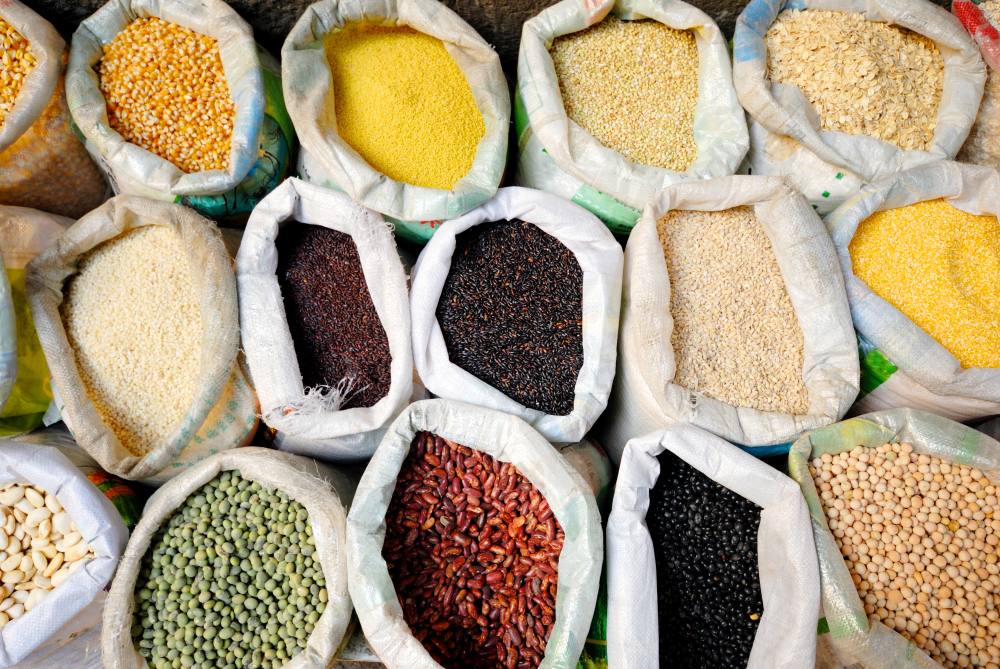Exploring the Diversity of Edible Seeds and Their Health Benefits

Seeds have long been celebrated for their nutritional value and health-promoting properties. From chia and flax seeds to pumpkin and sunflower seeds, the world of edible seeds offers a diverse array of options, each with unique health and well-being benefits. In this comprehensive guide, we’ll delve into the various types of edible seeds and their remarkable health benefits, helping you discover the best seeds to incorporate into your diet for optimal health.
Types of Edible Seeds
Here we discuss the types of edible seeds and their benefits, including:
1. Chia Seeds
Chia seeds, derived from the Salvia hispanica plant, are small but mighty seeds packed with nutrients. Rich in omega-3 fatty acids, fiber, and protein, chia seeds are renowned for supporting heart health, promoting digestive regularity, and aiding in weight management. These versatile seeds can be added to smoothies, oatmeal, or yogurt for a nutritious boost.
2. Flaxseeds
Flaxseeds, also known as linseeds, are prized for their high content of alpha-linolenic acid (ALA), a type of omega-3 fatty acid. Additionally, flaxseeds are rich in lignans, plant compounds with antioxidant properties that may help reduce the risk of chronic diseases such as heart disease and cancer. Grinding flaxseeds before consumption enhances their digestibility and allows for better absorption of nutrients.
3. Pumpkin Seeds
Pumpkin seeds, or pepitas, are a nutrient-dense snack packed with essential minerals such as magnesium, zinc, and iron. These seeds are also rich in antioxidants like vitamin E and carotenoids, which help protect cells from oxidative damage and support immune function. Incorporating pumpkin seeds into your diet can help promote bone health, regulate blood sugar levels, and support overall immune function.
4. Sunflower Seeds
Sunflower seeds are a popular snack known for their crunchy texture and nutty flavor. These seeds are an excellent source of vitamin E, an antioxidant that helps protect cells from damage caused by free radicals. Additionally, sunflower seeds provide a good source of protein, healthy fats, and minerals like selenium and magnesium. Consuming sunflower seeds may help reduce inflammation, support heart health, and promote healthy skin and hair.
5. Sesame Seeds
Sesame seeds are a staple ingredient in many cuisines, prized for their distinct flavor and nutritional profile. These tiny seeds are rich in lignans, antioxidants, and beneficial plant compounds linked to various health benefits. Consuming sesame seeds may help lower cholesterol levels, support bone health, and improve blood sugar control. Sprinkling toasted sesame seeds on salads or stir-fries adds a delicious crunch and nutritional boost to your meals.
Read More : HealthyCura.com
6. Hemp Seeds
Hemp seeds, derived from the Cannabis sativa plant, are gaining popularity as a nutritious superfood. These seeds are rich in omega-3 and omega-6 fatty acids, which play a crucial role in brain, heart, and inflammation regulation. Hemp seeds are also an excellent source of plant-based protein, containing all nine essential amino acids. Incorporating hemp seeds into your diet can help support muscle growth, improve skin health, and boost immune function.
7. Quinoa
Although commonly known as a grain, quinoa is technically a seed harvested from the Chenopodium quinoa plant. Quinoa is prized for its high protein content and complete amino acid profile, making it an excellent plant-based protein source for vegetarians and vegans. Additionally, quinoa is rich in fiber, vitamins, and minerals, including magnesium, iron, and zinc. Adding quinoa to salads, soups, or stir-fries can help support weight management, regulate blood sugar levels, and promote digestive health.
8. Poppy Seeds
Poppy seeds, harvested from the opium poppy plant, are commonly used as a culinary ingredient in various cuisines. These tiny black seeds are an excellent dietary fiber, calcium, and manganese source. Although poppy seeds are often used as a flavoring agent in baked goods and pastries, they also offer health benefits such as improved digestion, enhanced bone health, and reduced inflammation.
9. Pine Nuts
Pine nuts are the edible seeds of pine trees, prized for their delicate flavor and creamy texture. These nutrient-dense seeds are rich in monounsaturated fats, vitamin E, and antioxidants, which help protect against oxidative stress and inflammation. Pine nuts are also a good source of magnesium, a mineral crucial in energy production, muscle function, and nerve transmission.
10. Black Seeds
Black seeds, also known as nigella or black cumin seeds, have been used for centuries in traditional medicine for their medicinal properties. These small, black seeds are rich in antioxidants, including thymoquinone, which has been studied for its potential anti-inflammatory, antimicrobial, and anticancer effects. Consuming black seeds may help support immune function, improve respiratory health, and enhance skin health.
Final Words
Incorporating a variety of edible seeds into your diet can provide a wealth of health benefits, from supporting heart health and boosting immunity to promoting digestion and enhancing overall well-being. Whether you sprinkle them on salads, blend them into smoothies, or enjoy them as a snack, seeds offer a convenient and nutritious way to fuel your body and nourish your health. Experiment with different types of seeds to discover your favorites and reap the nutritional rewards of these tiny powerhouses of nutrition.


